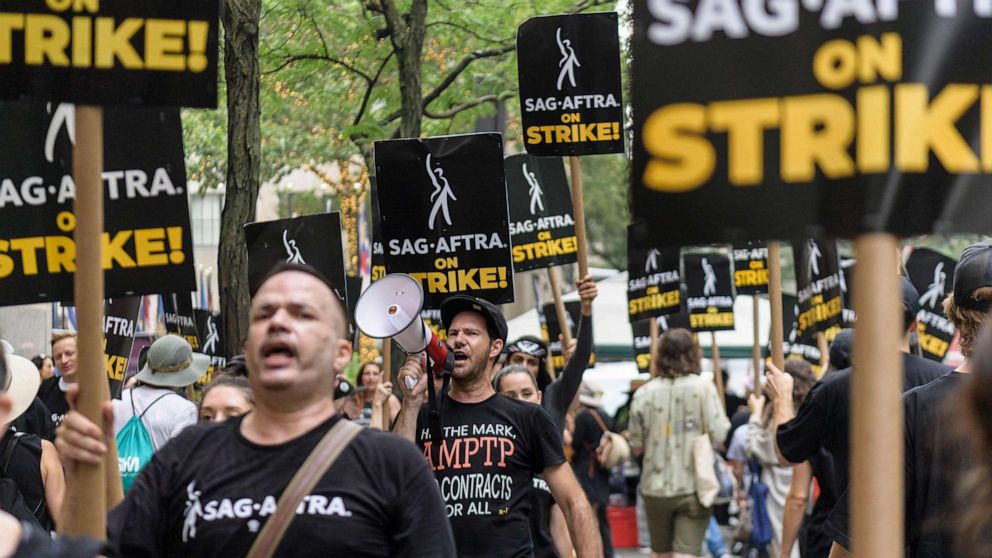


The Writers Guild of America reached a tentative deal with the major film and TV studios on Sunday, effectively ending a strike that had lasted 146 days.
Though details of the agreement remain scant, the negotiating committee for the writers' union lauded the tentative contract as "exceptional," promising "meaningful gains and protections for writers in every sector of the membership."
The tentative agreement was confirmed by The Alliance of Motion Picture and Television Producers, or AMPTP, the group negotiating on behalf of the studios. Disney, one of the studios represented by AMPTP, is the parent company of ABC News.
Despite the major breakthrough, key hurdles stand in the way of a return to normal business for Hollywood. The tentative deal must gain a series of union approvals before it takes effect and an ongoing actors' strike could keep Hollywood at a standstill for weeks or even months.
MORE: Hollywood writers reach 'tentative' deal with studios, end monthslong strikeHere's what happens next following the tentative agreement between the writers and studios:
Top boards at the union are set to vote on approval of the tentative agreement on Tuesday. If the deal makes it past this step, the contract will be put to a ratification vote among roughly 11,000 Hollywood writers who belong to the union.
The contract will only take effect if it gains majority support from the union members. If the members vote to reject the contract, the two sides will have to return to the bargaining table.
For now, the union is asking writers to stay off the picket lines but continue to withhold their work.
If the senior boards approve the tentative agreement on Tuesday, they may also enact a resolution that allows union union members to go back to work as the process for a ratification vote unfolds, the negotiating committee said on Sunday.
"This would allow writers to return to work during the ratification vote, but would not affect the membership's right to make a final determination on contract approval," the negotiating committee said.
In turn, late-night TV shows and other talk shows could return to air within days, even before the writers vote to finalize the deal struck on Sunday.
MORE: Worker strikes are surging. Strains of technology may be to blame in part.The majority of output from Hollywood is made up of TV shows and movies that require actors. Since July, a union representing roughly 160,000 actors has been out on strike as they seek a new contract of their own, bringing Tinsel town to a halt.
The end of the writers' strike could hasten a resolution for the actors, since both sets of workers share similar issues of concern over artificial intelligence and residual payments.
But the two professions also hold different demands in some key areas. The actors, for instance, have faced strong opposition from the studios over a demand that they receive 2% of the total revenue generated by streaming shows.
In the meantime, a prolonged work stoppage among the actors could delay the return to work for writers. In a message to union members announcing the agreement on Sunday, the WGA encouraged writers to join actors on their picket lines.